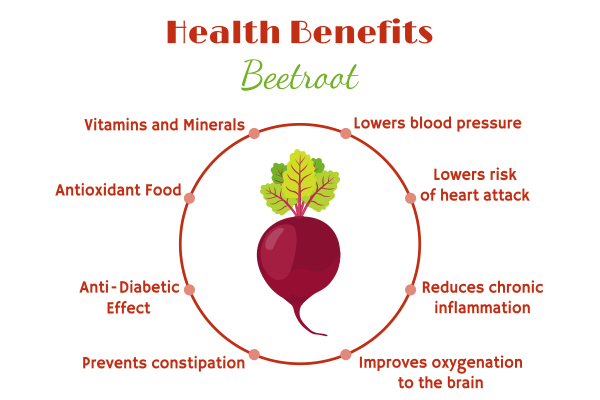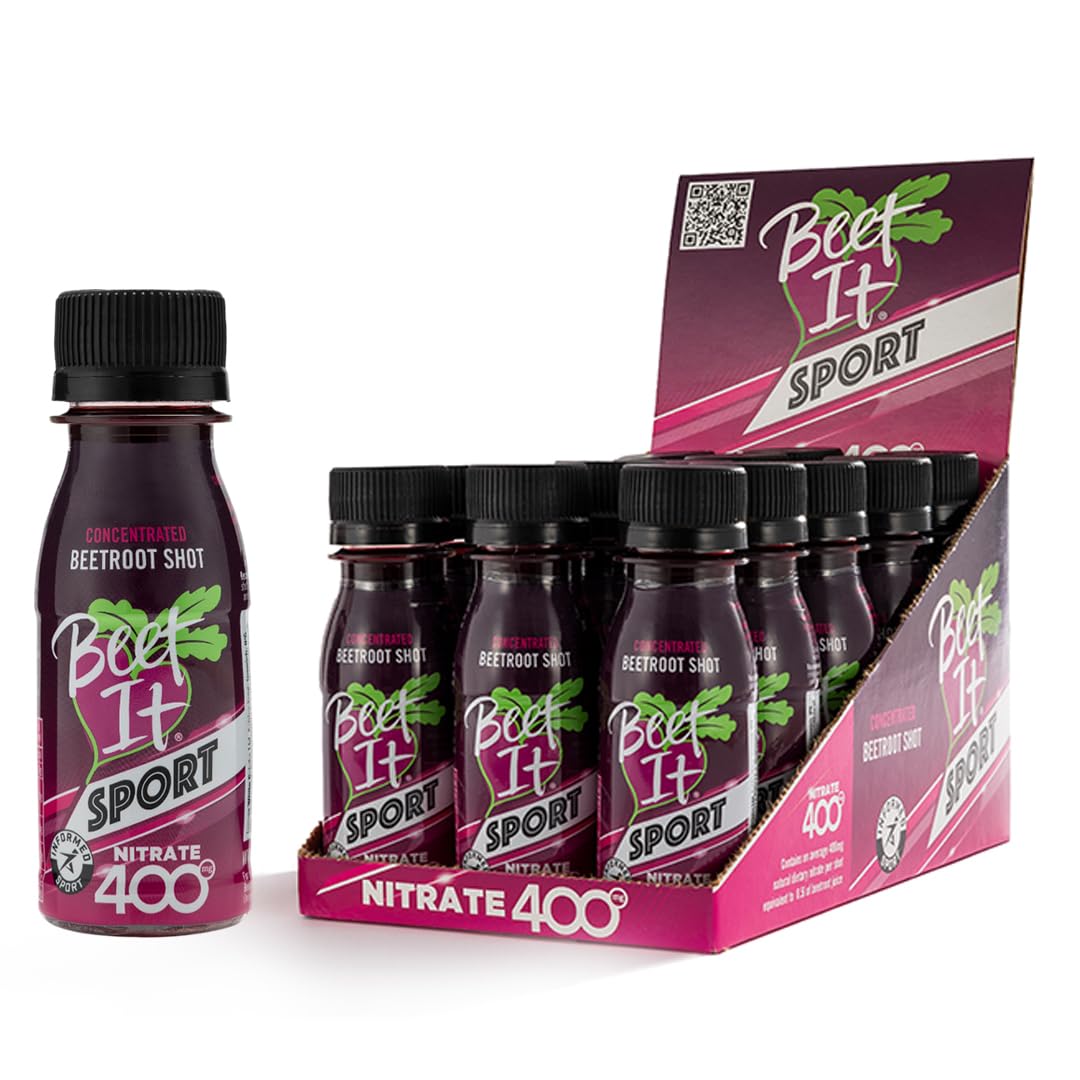Best Carbohydrate Drinks 2025 For Cycling
Forget bananas and bars. We break down the new 2025 standard of 80g+ carbohydrates per hour and the only drinks that make it possible without a stomach ache.
Discover how beetroot supplementation can enhance cycling performance through improved oxygen efficiency, increased power output, and delayed fatigue. Research-backed insights on dosage, timing, and consumption methods for optimal results.
.webp)
Ever wonder why some cyclists have that distinctive reddish bottle in their jersey pocket? Turns out, beetroot isn't just for salads anymore.
This humble root vegetable has emerged as a legitimate performance enhancer in the cycling world, backed by growing scientific evidence.
From weekend warriors to elite competitors, cyclists are increasingly turning to this natural nitrate powerhouse to gain a legal edge.
With studies showing improvements in oxygen efficiency, power output, and fatigue resistance, beetroot supplementation represents a fascinating intersection of traditional nutrition and cutting-edge sports science.
Athletes increasingly turn to natural supplements for performance benefits, seeking healthier alternatives to synthetic compounds.
Beetroot has captured significant attention in cycling circles due to its high nitrate content.
This root vegetable has gained popularity as riders look for legal, natural ways to improve their endurance capabilities.
Scientific research suggests beetroot can enhance oxygen efficiency during exercise, increase power output, and delay fatigue onset making it particularly appealing for endurance cyclists.
These benefits stem from beetroot's ability to boost nitric oxide production in the body, potentially giving riders an edge during training and competition without resorting to banned substances.
Beetroot contains high levels of inorganic nitrates that convert to nitric oxide in the body.
This conversion occurs when oral bacteria transform nitrates into nitrites, which then become nitric oxide during digestion. The increased nitric oxide causes blood vessels to widen, improving blood flow and oxygen delivery to working muscles.
Research shows these physiological changes directly benefit cyclists. Studies document a 5% reduction in oxygen cost during moderate-intensity riding, meaning athletes can maintain the same power output while using less oxygen.
This improved efficiency translates to better performance during training and racing, particularly in submaximal efforts where endurance is key.

Clinical studies consistently show measurable improvements in cycling performance following beetroot consumption.
Research documents a 0.8% to 2.8% performance gain in time trials ranging from 4 km to 50 miles.
These improvements include increased watts per liter of oxygen consumed, extended time to exhaustion, and reduced fatigue during moderate-intensity rides.
The performance benefits appear most pronounced in recreational and moderately trained cyclists, with elite athletes experiencing smaller gains.
This difference likely occurs because top-level competitors already operate near their physiological limits.
Beetroot may offer additional advantages beyond its nitrate content due to its natural antioxidant and anti-inflammatory compounds, though more comparative studies with other nitrate sources are needed to confirm this potential benefit.
Cyclists can access beetroot's performance benefits through several forms, each with distinct advantages.B
eetroot juice stands as the most thoroughly researched option, providing reliable nitrate concentrations that take effect quickly. Studies typically use juice in clinical trials because it delivers consistent results for riders.
Powdered beetroot offers portability and standardized dosing, making it practical for athletes who travel to competitions.
These products maintain their effectiveness when they clearly state nitrate content on labels.
Raw beetroot requires eating large quantities to match the nitrate levels found in concentrated forms, making it less convenient for pre-ride fueling.
Supplement capsules can work if they contain appropriate nitrate doses, but quality varies between products.
Most performance research points to juice or powder as the most dependable options for cyclists seeking nitrate-based endurance benefits.
Research indicates that cyclists should aim for 6–8 millimoles of nitrate per day to experience performance benefits.
This typically equals about 500 ml (16 oz) of beetroot juice. For optimal results, consumption should occur 2–3 hours before cycling, which aligns with peak plasma nitrate and nitric oxide levels in the bloodstream.
Athletes should note that responses to beetroot vary significantly between individuals.
Factors affecting how well the supplement works include genetics, gut microbiome composition, and oral bacteria populations.
Some cyclists may be "non-responders" who experience minimal benefits despite proper dosing.
This highlights why personal testing during training rides not just on race day proves important for determining if beetroot supplementation works for your specific physiology.
Research shows recreational cyclists typically gain more from beetroot supplementation than elite riders.
While weekend warriors might see notable improvements in endurance and power output, professional cyclists often experience only modest benefits.
This difference occurs because elite athletes already function closer to their physiological limits, leaving less room for improvement.
Some cyclists combine beetroot with caffeine to potentially amplify performance gains.
This approach targets different physiological systems simultaneously - beetroot improves blood flow and oxygen delivery, while caffeine enhances central nervous system function and reduces perceived exertion.
When used together, these supplements may provide greater performance improvements than either alone.
Athletes experimenting with this combination should start with conservative doses to monitor individual responses and potential side effects before competition.
Beyond performance gains, beetroot offers cyclists several recovery benefits.
Studies indicate potential reductions in post-exercise inflammation and faster muscle recovery.
Regular consumption may also support cardiovascular health and moderately lower blood pressure during non-exercise periods.
Cyclists can integrate beetroot into their nutrition plans several ways:
Simple recipe options include beetroot-citrus smoothies (combining beetroot juice with orange and berries), energy balls using oats and beetroot powder, or roasted beet salad with quinoa and walnuts.
These preparations allow riders to obtain performance benefits while maintaining food variety and palatability during training cycles.
Some cyclists report gastrointestinal discomfort after consuming beetroot products, including gas and bloating.
Temporary pink urine or stools are common and harmless side effects. Many riders also find the earthy taste of beetroot juice challenging, though flavored options and powders can make consumption more pleasant.
While short-term use appears safe for most cyclists, limited research exists on long-term beetroot supplementation.
Riders with low blood pressure or taking hypertension medications should consult healthcare providers before adding beetroot to their training regimen, as the combined effect could potentially lower blood pressure excessively.
Sports nutrition experts generally support beetroot as a safe, legal performance aid when used according to evidence-based guidelines.
For best results, cyclists should select products that clearly state nitrate content on labels and carry third-party testing certification for purity.
Always test beetroot products during training sessions before using them in competition to assess individual tolerance and performance response.
Beetroot supplementation offers cyclists a scientifically validated, natural approach to enhancing performance without venturing into prohibited substance territory.
While individual responses vary, the evidence suggests measurable gains in endurance, oxygen efficiency, and recovery for many riders particularly recreational cyclists with room for physiological improvement.
Before your next important ride, consider adding beetroot to your nutrition strategy.
Whether through concentrated juice shots, powders in your pre-ride smoothie, or whole foods in your training diet, this crimson root vegetable might just provide that extra push when you need it most.
Just remember to test your personal response during training before relying on it for race day.

BeetSport Pro Elite Beet Juice Concentrate stands out as one of the best options available.
This concentrated formula is packed with natural nitrates, which help improve blood flow, oxygen delivery, and stamina during long rides. Each serving is designed for athletes who want a clean, plant-based way to enhance performance without relying on artificial stimulants.
he convenient liquid format makes it easy to mix into water or a smoothie before training or racing, giving cyclists a quick and powerful dose of energy support.
Whether you’re tackling a tough climb or preparing for a long endurance ride, BeetSport Pro Elite provides the edge you need to ride stronger and recover faster.
Perfect for the new riders!
No spam. Cancel anytime.